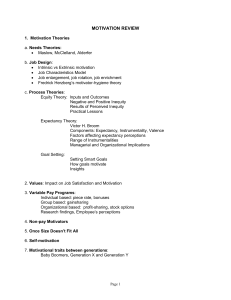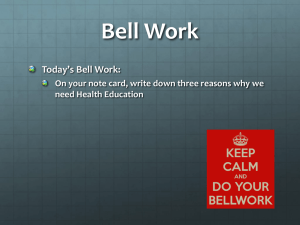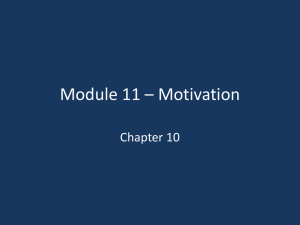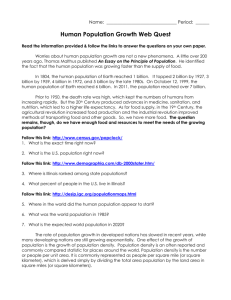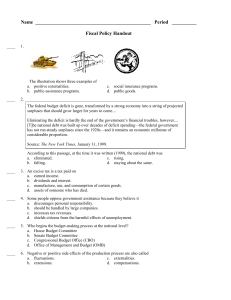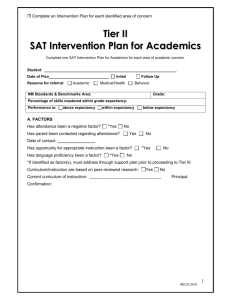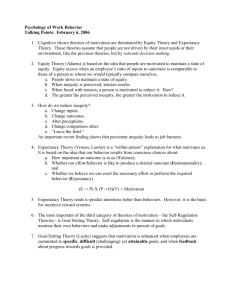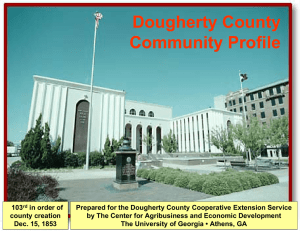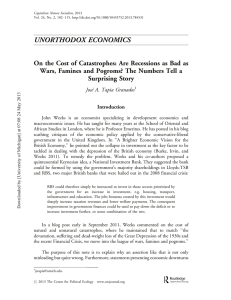BUS-692-Week-1-DQ-2-Expectancy-and-Equity-Theory
advertisement
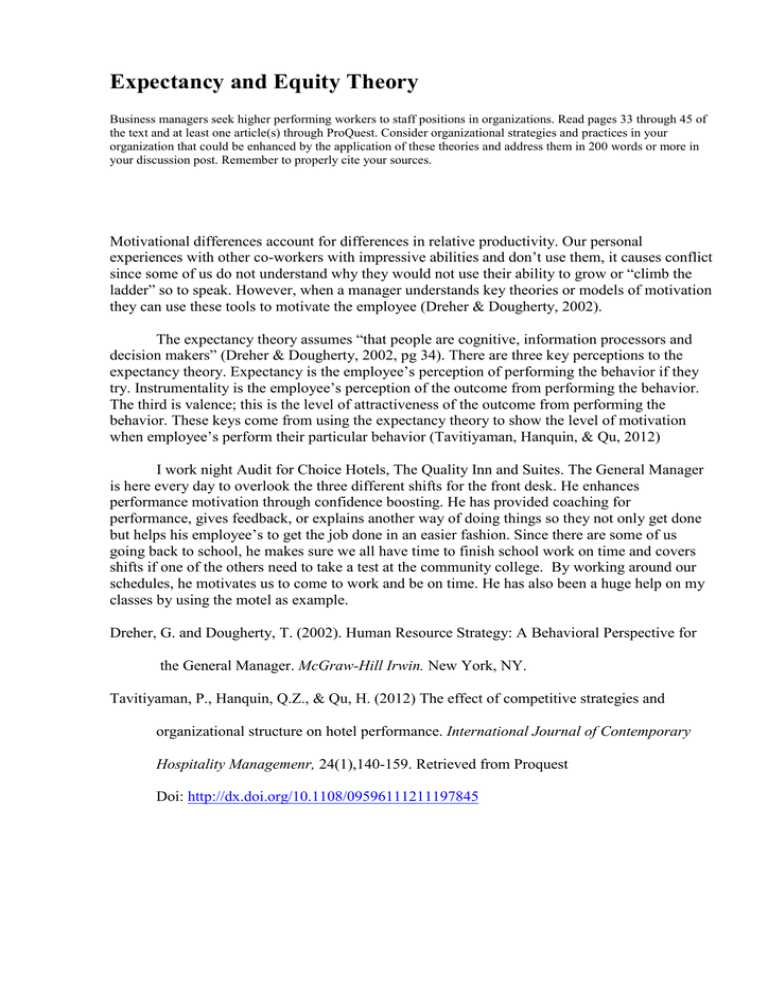
Expectancy and Equity Theory Business managers seek higher performing workers to staff positions in organizations. Read pages 33 through 45 of the text and at least one article(s) through ProQuest. Consider organizational strategies and practices in your organization that could be enhanced by the application of these theories and address them in 200 words or more in your discussion post. Remember to properly cite your sources. Motivational differences account for differences in relative productivity. Our personal experiences with other co-workers with impressive abilities and don’t use them, it causes conflict since some of us do not understand why they would not use their ability to grow or “climb the ladder” so to speak. However, when a manager understands key theories or models of motivation they can use these tools to motivate the employee (Dreher & Dougherty, 2002). The expectancy theory assumes “that people are cognitive, information processors and decision makers” (Dreher & Dougherty, 2002, pg 34). There are three key perceptions to the expectancy theory. Expectancy is the employee’s perception of performing the behavior if they try. Instrumentality is the employee’s perception of the outcome from performing the behavior. The third is valence; this is the level of attractiveness of the outcome from performing the behavior. These keys come from using the expectancy theory to show the level of motivation when employee’s perform their particular behavior (Tavitiyaman, Hanquin, & Qu, 2012) I work night Audit for Choice Hotels, The Quality Inn and Suites. The General Manager is here every day to overlook the three different shifts for the front desk. He enhances performance motivation through confidence boosting. He has provided coaching for performance, gives feedback, or explains another way of doing things so they not only get done but helps his employee’s to get the job done in an easier fashion. Since there are some of us going back to school, he makes sure we all have time to finish school work on time and covers shifts if one of the others need to take a test at the community college. By working around our schedules, he motivates us to come to work and be on time. He has also been a huge help on my classes by using the motel as example. Dreher, G. and Dougherty, T. (2002). Human Resource Strategy: A Behavioral Perspective for the General Manager. McGraw-Hill Irwin. New York, NY. Tavitiyaman, P., Hanquin, Q.Z., & Qu, H. (2012) The effect of competitive strategies and organizational structure on hotel performance. International Journal of Contemporary Hospitality Managemenr, 24(1),140-159. Retrieved from Proquest Doi: http://dx.doi.org/10.1108/09596111211197845
